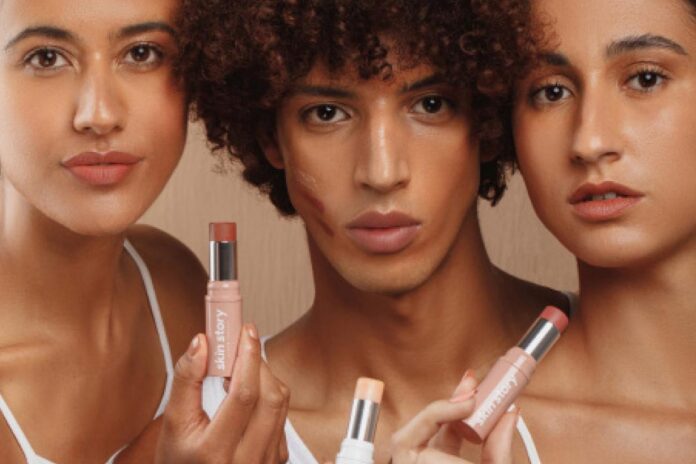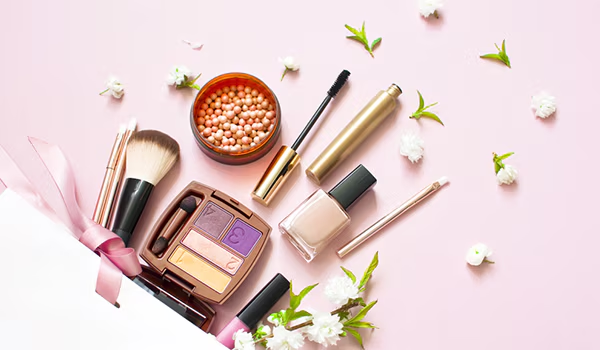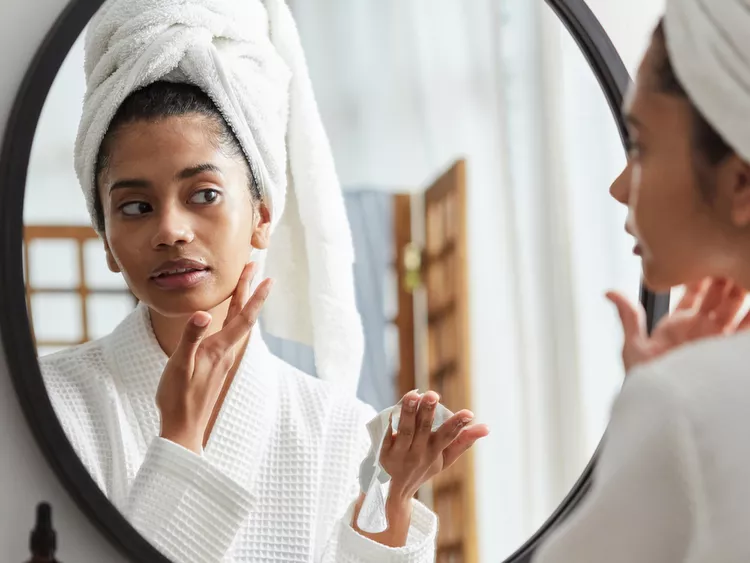Winter can be hard on your skin and hair. The cold air and indoor heating can dry it and make it look lifeless. Some winter beauty essentials in this regard can help you maintain the health of your radiant skin and hair during the colder months. This guide will help you understand how to protect and nourish your skin and hair.
Winter Beauty Essentials
Hydrate your skin
One of the things you need to remember is that your skin dries up very quickly in cold temperatures. Therefore, to begin with, use a rich, moisturizing cream. Look for the presence of ingredients in the cream, such as hyaluronic acid and glycerin. They help to retain moisture in your skin and thus keep it soft and supple. Apply this cream to your skin twice every day: once in the morning and once at bedtime.
Clean your skin gently

In winter, your skin tends to be more sensitive. Use a gentle cleanser that will moisturize your skin without stripping the mild, oily layer. Avoid strong soaps or cleansers with alcohol. Wash your face with a soothing formulation that contains ingredients like aloe or chamomile. Use a gentle cleanser to wash your face a couple of times every day to keep your skin free from makeup and dirt.
Exfoliate Wisely
Exfoliation is important, although not overexfoliation. Too much scrubbing may lead to irritation of the skin, especially during the winter period. Exfoliate once a week using mild exfoliators to get rid of dead skin cells and provide room for a healthy, nice glow. Look out for products that contain gentle exfoliating agents, such as alpha-hydroxy acid or beta-hydroxy acid.
Keep Your Lips Moisturized
Chapped lips are a common problem in winter. Use a moisturizing lip balm to keep your lips soft and smooth; look for balms with natural oils, such as coconut oil or shea butter. Apply it frequently, particularly before going out and going to bed.
Stay Hydrated from the Inside

As far as skin care and hair care are concerned, you must drink ample water to keep your skin and hair parts in good health. Make it a point to drink at least eight glasses of water every day, even in the winter season. Hydrating helps to balance your body and will also help to support the skin’s elasticity and moisture levels.
When outside, protect your skin from biting winds and low temperatures. Wrap a scarf around your neck and face. Use gloves to protect your hands from the cold while also keeping them moist. Don’t forget sunscreen in the winter. The winter rays can still damage your skin, so apply broad-spectrum sunscreen with at least SPF 30.
For healthy hair
Winter can be just as rough on your hair. The dry, hot air emitted from indoor heating can suck moisture out of your locks and make them brittle. Use a moisturizing shampoo and conditioner to keep your hair hydrated. Keep an eye out for products that are nourishing with ingredients like argan oil or keratin.
Deep condition regularly
A deep conditioning treatment should be done every week to re-inject moisture and shine back into the hair. One should use a deep conditioning mask or treatment at least once a week. It should be applied to damp hair, left for its prescribed time, and rinsed off properly. This will help fight dry hair and maintain healthy hair.
Prevent the application of heating appliances to the hair
Heat styling products, such as blow dryers and straighteners, could further dry out the hair during the winter. It is recommended that blow dryers and any other heat appliances be avoided with the maximum effort. Spray a heat-protectant spray on your hair if you intend to use heat appliances. Allow your hair to air dry when you have the time, since this will save your hair greatly from heat.
For instance, indoor heating dries the air, causing dehydration of the skin and hair. A humidifier introduces the necessary moisture content into the air needed for one’s skin and hair. Set a humidifier in the room or place where there is more traffic, such as a bedroom or a living room.
Winter clothes sometimes rub against your skin. Wear eco-friendly, natural fabrics such as cotton and wool. These cause less friction and, hence, will not scratch your skin as the synthetic fibers do. Do not put on scratchy or harsh fabrics against your skin. This will prevent dryness and irritation.
Eat a well-balanced diet
What you eat reflects on your skin and hair. Include a lot of fruits, vegetables, and healthy fats in your diet. Foods rich in vitamins A, C, and E are very good for your skin and hair. Fish, nuts, and seeds are excellent sources of omega-3 fatty acids that can promote healthy skin and hair.
Exercise Regularly
Apart from this, exercise is good for the overall well-being of an individual—it is good even for the skin and hair. It improves blood flow, which facilitates the delivery of necessary elements to the skin and scalp. Try to get 30 minutes of exercise most days of the week.
Self-Care
Lastly, take time for yourself. Winter can be busy and exhausting, so give yourself a rest. Spend some time reading a book, taking a relaxing bath, or meditating.
The key to winter skin and hair care is about hydration, the right products, and protection against the cold. Look at these winter beauty must-haves and face them with confidence.
Salon vs. Home Hair Coloring: Pros and Cons
Meta Title: Salon vs. Home Hair Coloring: Pros and Cons Explained
Meta Description: Discover the pros and cons of each option, including expertise, cost, convenience, and results.
Hair color is a popular way to refresh your look or just cover up the grays. But what’s the best option: a professional salon or an at-home coloring kit? Both have distinct advantages and disadvantages. Understanding them can help you choose what’s going to be best for you, your needs, and your lifestyle.
Hair Color at the Salon: The Advantages
Expertise and precision
When you go to a salon for hair coloring, you’re paying for professional expertise. Stylists are trained to apply the latest techniques and understand how the various colors and products work on different types of hair. They can mix shades to hit just the right hue and apply color evenly, avoiding some of the more serious misapplications that often occur.
High-Quality Products
What is also good about salons is their access to high-end products not normally supplied for home use, meaning formulations that have the power to make their colors more brilliant and increase their longevity. Professional dyes are generally less damaging and can also offer improved coverage, especially against those graying resistors.
You can receive a personal consultation and tailored results at a salon. Your stylist will help you choose the right shade of color for you so that it suits your skin tone, achieving the desired look. Treatments to protect hair health They will also offer pre- and post-treatment advice for protecting your hair during the coloring process.
Time-Saving
Salon hair coloring gives you a lot of convenience since you do not have to deal with the mess and time-consuming preparations of the hair dye or the applications. You can just relax in your seat and read a book, for example. You could also doze off with books on your head as they do all the work.
Disadvantages of Coloring Your Hair at a Salon
Cost
One of the major drawbacks to salon hair coloring is the cost. The services provided can add up to a considerable amount, especially when one wants to do intricate coloring treatments, say, highlights or balayage. The cost keeps adding up fast and may add considerably to your bill.
Time Commitment
Scheduling an appointment at a salon takes a lot of time. You may be forced to wait even for weeks before a salon appointment coincides with your availability. The actual appointment can also last for a few hours.
Opportunity for Miscommunication
Miscommunication can occur if you are not precise about your choice. The stylists can misinterpret you and, therefore, leave you with a result that was not your desire.
Home Hair Coloring: The Pros
Affordability
Compared to salon treatments, home hair coloring is very pocket-friendly. There are a number of box dyes that you can get at drugstores and that are really cheap. This, therefore, provides an excellent way to save money.
Convenience
You can color your hair at any time that suits you. There is no need to book an appointment and adjust your schedule around the salon hours. Plus, you may do it from the comfort of your own home, which can be more relaxing.
On the home front, you are the only boss. You will select the exact shade you desire, apply the color at your pace, and do some more until you get it right. This might be an appealing amount of control if you’re the kind of person who likes their hands doing the applying.
Home Hair Coloring: The Cons
Risk of Mistakes
Without professional training, it’s easy to make mistakes. Achieving an even color can be challenging, and you might end up with patchy or uneven results. You also risk damaging your hair if you don’t follow the instructions carefully.
Limited Product Range
Home hair coloring products tend to not be reflective of great advancements like salon-grade products, which sometimes might not deliver such a degree of richness and longevity in the color tone. Besides, some products are harsh on the hair and may result in dryness or even breakage.
Coloring your hair at home can be a really messy process. You will have to prepare your work area, manipulate spillages, and clear up afterward. Inconvenient, right?
At-Home Hair Coloring: Key Tips
Patch Test: Test the dye on a small patch of skin to check for allergic reactions.
Instructions: Read the instructions well and apply them accordingly so that there won’t be any mishaps.
Good Products: Use good-quality dye and tools. This will help with good results.
Help If Required: If you are somewhat in doubt about the process, it’s better to take help from a friend or family member.
Conclusion
The choice of whether one should have color and/or a hair treatment in a salon depends on budget, time, and the desired result. Salons do offer expertise, high-quality products, and convenience, but they come with a hefty price tag. On the other hand, home coloring is less expensive and objectives are far more flexible, although home jobs include risk and difficulty. The pros and cons of either are what you weigh up against the other, and then you can make an informed decision based on your needs or the results you desire.



